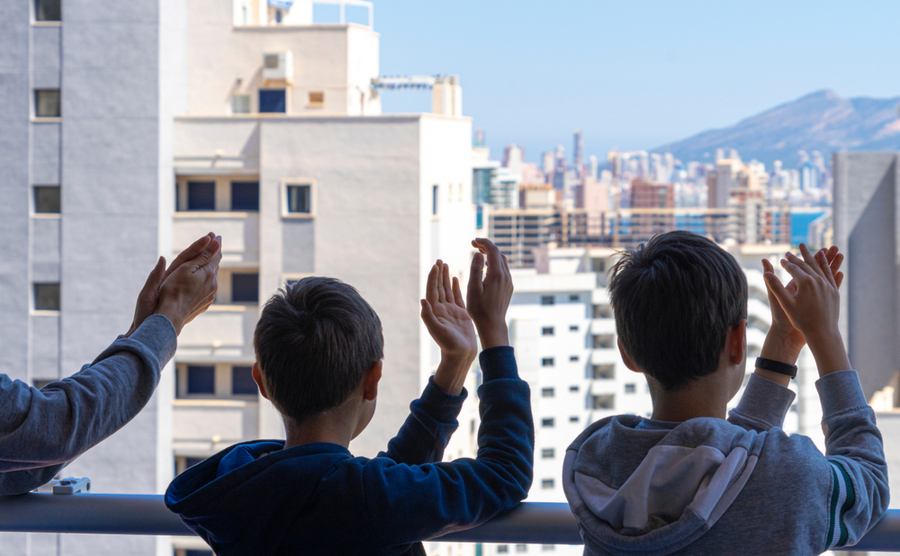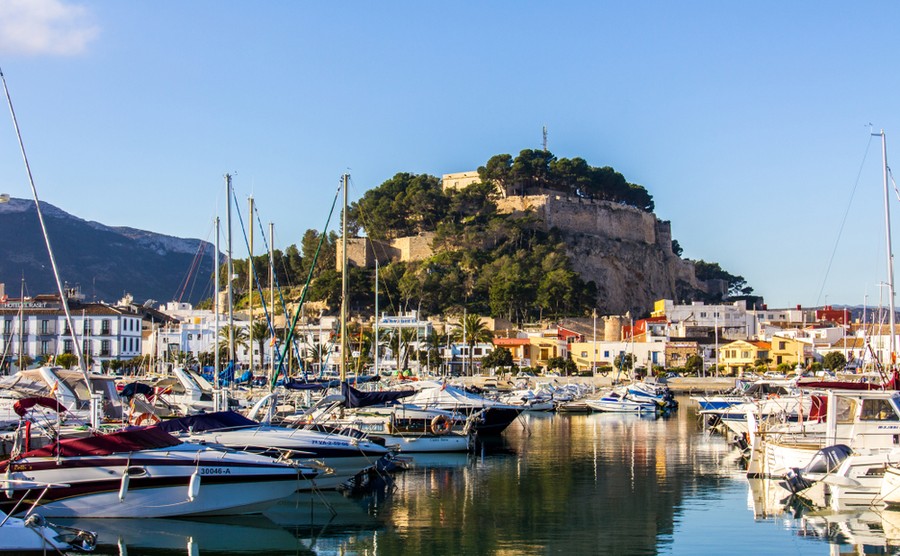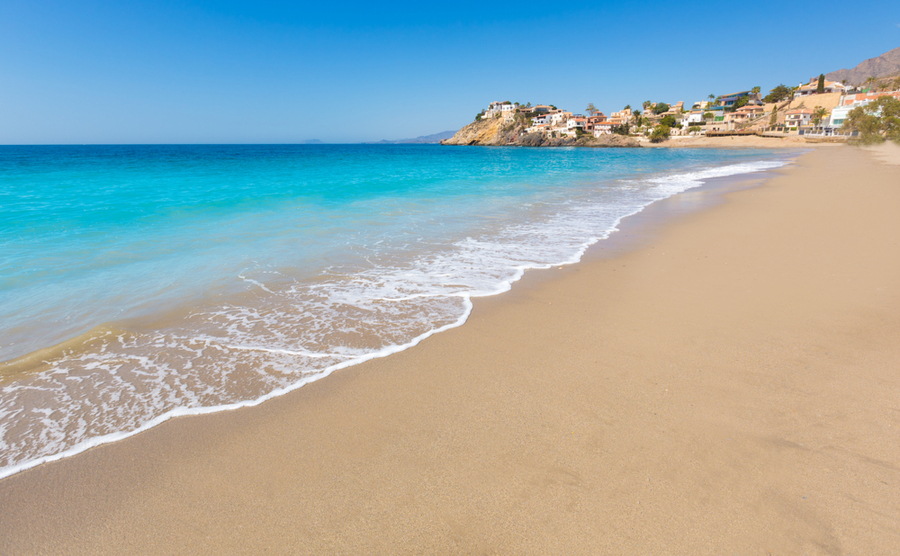As Spain prepares to salvage what it can of its summer season, our writers on the costas spoke to estate agents to see how the property market will return (and what might happen to home prices when it does).
The Spanish prime minister has announced a gradual de-escalation of the lockdown in two-weekly phases. There will be four phases in total, starting from Saturday 2 May. By the end of June some kind of normality may have returned to Spanish society and commerce.
To be ready to buy in Spain when the lockdown ends, we can put you in touch with the very best lawyers, estate agents and currency specialists. Make contact with your Golden Three here.
The government announced that there will be a mass virus testing campaign so that it can have a more accurate picture of how the virus is spread in the community. The plan is to test over 62,000 people over the next three weeks. Then it will be better able to plan the easing of restrictions.

Children in Spain’s lockdown will now be allowed out, briefly
When the mass tourist industry will recover is another matter, but the property market is not really part of that. So can you buy a property yet? We asked estate agents across southern Spain.
What’s happening in the property business?
Karsten Ryder of Vincent Real Estate on the Costa Blanca says: “All professional services are running, however, some have limited activity. Notaries, solicitors and architects/surveyors are still functioning. Some registration processes are being allowed to be done electronically with the Town Halls, previously it was via live signature.”
You may wonder whether, in theory, if we liked a house we see online, we could buy it from the UK now? Sort of, says Karsten: “Any property can be reserved, at an agreed price, with a deposit. By agreement with the owner, the reservation contract can be issued as a ‘subject to contract’. The client would be expected to travel within two weeks of travel restrictions being lifted. They then view and decide if they like it or not, if not, we will continue our search for them (while they are with us). If they still buy nothing, their deposit will be refunded.”
How might the lockdown end for property?
Property professionals are likely to bring in social distancing methods so you can buy safely when we can travel, says Karsten: “Agents will adopt it themselves, for example meeting the client at the property rather than driving them there, then opening the property up and letting them look themselves.”
When it comes to flights, Karsten says: “There are lots of rumours, but most of us are questioning the validity of them. We think they will get Spain on an even keel first and then see which countries will be allowed to fly in, with possible quarantine or health checks on entry.”
Chloe Williams of The Spanish Estate agent adds: “We also see that flights may be quite cheap in the first instance. Airlines will be desperate to sell tickets to try their best to improve ticket sales.”
Has demand for Spanish property fallen?
Karen O’Hagan of Casa y Campo in Almeria, says: “It is our feeling as agents that we will have a busy period post lockdown. We have been kept busy throughout lockdown with clients wishing to view and ultimately buy post-pandemic. We feel there will be an urgency to buy. People have lost the time they could have been enjoying in their ultimate “dream” property and they want to change their lifestyle in a positive way.”

Worth waiting for! Denia on the Costa Blanca (MiniMoon Photo / Shutterstock.com)
Chloe Williams of The Spanish Estate agent says: “Interestingly, many people are saying to us that the pandemic has made them realise that life is short and they want to be able to enjoy a different lifestyle as soon as possible. They don’t want to wait. They believe that there is value in getting on with your life and enjoying the change of pace and enhanced lifestyle which Spain offers.”
On the subject of which properties will be most popular in the immediate aftermath, Chloe says: “We’re seeing an increase in clients requesting short-term holiday lets. They feel safer in a private residence than a hotel. The knock-on effect is more and more clients asking for good properties to buy and to let out. That could be anything from a simple apartment right up to luxury villas.”
What might happen to prices?
Karsten Ryder of Vincent Real Estate says: “Prices may wobble a little, nothing like the crash in 2008 though. The demand and waiting list for viewings is huge. Vendors are tending not to take low offers. We have had seven offers during CV19. Two have resulted in reservation deposits and the other offers were declined as they were more than 10% below asking price. Also remember, a lot of vendors have already reduced their properties pre-Brexit and will not go lower than 5% from asking price.”
Chloe Williams of The Spanish Estate agent says: “There are several issues which will affect this including the amount of property on market and the ability of vendors to be able to sell. We are seeing vendors simply taking properties off the market as they cannot sign powers of attorney at the moment or until there is more freedom of movement. However, we are noticing increased levels of enquiries particularly for clients from northern Europe. Some developers are even now offering virtual tours and the ability to reserve a property for €500 which is refundable if you change your mind once you can make the trip.”
The expat’s view, from Sally in Spain
Spain is a country of socialising out of the home, meeting friends in a bar, tapas bar or café, having a menú del día lunch with workmates or chums, stopping off for a caña or two on your way home from work. Essentially, staying out of the house as much as possible!
The average apartment measures just 60 square metres and is really a place to sleep and to eat with the family. Being stuck inside this small space for weeks on end is seriously difficult for people, often without even a small balcony. Imagine the typical family here of 3 children, parents and probably a dog all crammed into 60 sq m. This can only be maintained for a short time and the government knows it.

Empty beach in Mazarrón.
Better off Spanish people and the majority of foreigners living here will live in smart houses or urbanisations where they will have gardens, probably a pool and space to breathe. For them, the lockdown is an inconvenience while many will work from home but here too there will be an economic shock as businesses are closed. The government needs to get people back to work as soon as possible.
Concerts, sports events, festivals will all have to wait as will foreign travel. It is possible that the wait will be several months. Safety from Covid-19 comes first and large gatherings are breeding grounds for infection.
A different Spain
Spain will emerge from this crisis a different country. Of course we will still be meeting our friends and family in the bars and cafés, the sun will shine and one day the beaches will be busy again. What will have changed? Firstly, politics will be more inclusive, the small person will be recognised. The opposition parties will continue to berate the government about its response to the virus pandemic but all will realise that support for the family living in its 60 sq m apartment is vital, so is support for those who have lost their jobs and the for the medical staff who have taken the brunt of the daily fight against this epidemic.
More funds will have to be made available for the health service which has suffered badly from lack of investment and worse still, cutbacks imposed during the years of austerity. Despite this, Spain was recently named as one of the safest countries in the world and having the best health service in Europe.
The same goes for education which also suffers from underfunding after the years of austerity. It is hoped that politics will be “kinder” though with a minority coalition government it will be difficult to get some new proposals turned into Law.












